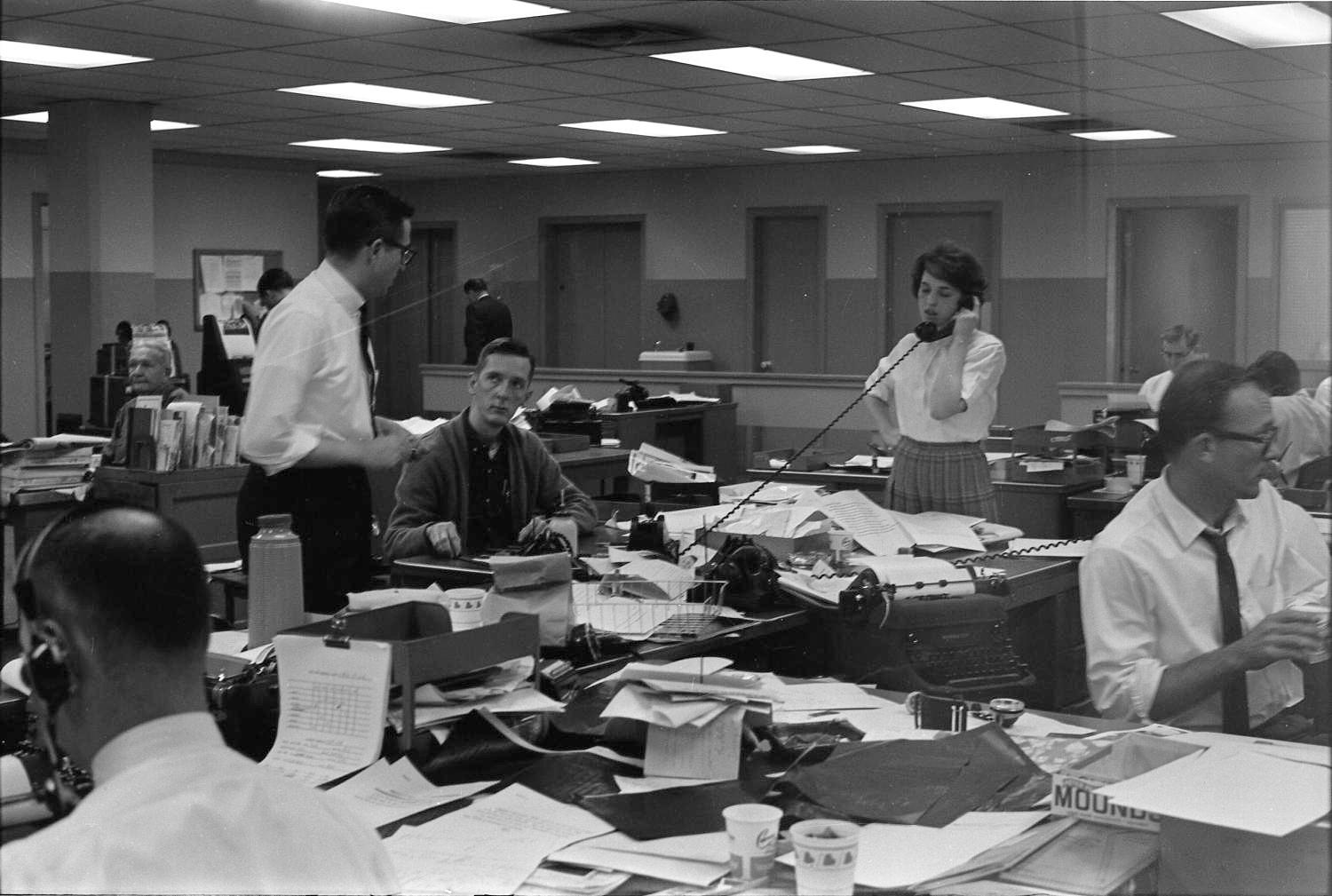Ruth Ayres, the young woman sitting next to me in the Times Herald newsroom, was overjoyed at my arrival in June of 1965. As the newest and youngest reporter, it had fallen to her to write all the obituaries—typically 12 to 15 a day. Now I was newest and youngest, and city editor Ken Smart decreed Ruth and I would share the burden, each assigned to obits every other day.
Obituary writing is the last thing most reporters want to do. The reason is that it is boring. I realize that some newspapers, such as the New York Times, assign top-deck writers to write before-the-fact obits of famous business, political, and cultural figures, with the reporter often interviewing the subject. Such obits are held until the person dies and are periodically updated. That’s interesting work, but not what the two of us were doing, starting about 6:30 every morning as the funeral homes began calling.
Usually we never spoke to the dead person’s family. The funeral home would gather the pertinent information and phone the newsroom switchboard, with calls routed to whichever of us was on obit duty that day. Some funeral home callers were entirely businesslike, reeling off the pertinent facts. Others would dictate fulsome narratives they expected us to take down—as in, “Mr. Smith was the loving husband of wife Dorothy, the beloved father of Donna, David, Delores, and Donald, and doting grandfather of . . .” and so on. That is how paid obituaries are composed, but not those on the news pages.
You’re probably wondering whether, considering the era, the Times Herald published obituaries of black Dallasites. The answer is yes, but not often. The deceased African-American had to be a pillar of his or her community to attract the newspaper’s attention. Did I like that policy? No. Did I try to change it? No again.
Later, at the Chicago Sun-Times, I observed that obits called in to the city desk were assigned to whatever reporter seemed least busy at the moment, regardless of that person’s rank or status. I tried sometimes to wiggle out, always without success: “Fred, take an obit on line six.” “ Sorry, Mac, I’m busy.” “Busy? You’re reading the fucking paper! Pick up line six.” “But Mac, reading the Daily News is part of my job, which means I’m busy.” “Good try, Frailey. Line six.”
At the Sun-Times, the absolutely worst obituaries to write were those of servicemen killed in Vietnam. The Defense Department would release names, and presumably by then the families had been notified. But not always. Chicago’s City News Bureau would send out a list of names and family addresses, and Leighton (Mac) McLaughlin or another assistant city editor would distribute the names around the city room, the unwritten rule being that nobody would get more than one family to call. This fell to me a couple of times, and the experiences were painful enough that I’ve forgotten them. Our task in these instances was first to confirm that the battlefield death had occurred, and then to learn what we could about the dead soldier.
But back in 1965 at the Times Herald, I was grateful for anything to do and wrote the obits without complaint. By late morning I’d be finished, and I made myself available for any tasks at hand.
Late one morning the task at hand was a fire reported at one of the tony Dallas department stories. Ken Smart told me to call before going to the department store because the home-delivery deadline was upon us. The store’s switchboard put me right through to one of its executives, who acknowledged there had been a fire. But it was quickly extinguished. He gave me a few more details, then said, “You can’t print anything about this because we’re an advertiser and it would harm our image.” I told the man I’d pass this on to my editor and hung up.
Ken told me to write it up quickly, to meet the deadline, and I did, and it was published, all three paragraphs, somewhere in the bowels of the paper. But that was about all the event was worth. I never heard another word about the incident, and of course the department store continued to advertise.
This is probably a good time to describe the paper’s publishing schedule. The day’s first deadline, for out of town delivery, was 8 a.m., with the press time occurring about 90 minutes later. The main, home delivery deadline for the Dallas area was 11 a.m. The final deadline, for a small run of newsstand papers, was about 1:30 p.m.
These deadlines, and the pace of events in Dallas and the world, meant that a lot of what we were writing would not be published in that day’s paper, but in tomorrow’s. In fact, anything happening after about 10 a.m. would probably get to readers of the Dallas Morning News the next morning before our own readers saw it later the next day. If you wonder why afternoon newspapers died off one by one, that’s one reason.
